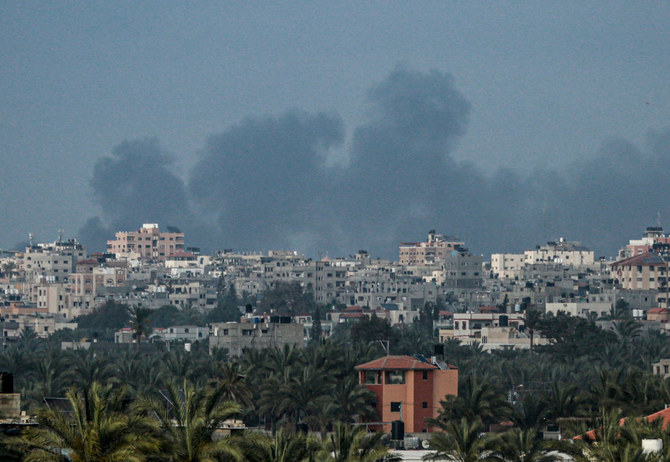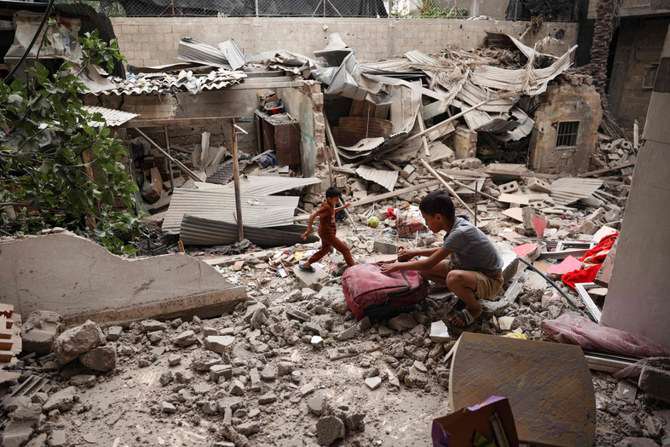JEDDAH/GAZA STRIP: Palestinians in Rafah said on Saturday they were living in “constant terror” as Israel vows to push ahead with its planned assault on the south Gaza city flooded with displaced civilians.
The Israeli military has massed dozens of tanks and armored vehicles in southern Israel close to Rafah and hit locations in the city in near-daily airstrikes.
“We live in constant terror and fear of repeated displacement and invasion,” said Nidaa Safi, 30, who fled Israeli strikes in the north and came to Rafah with her husband and children.
Gaza’s Health Ministry said at least 34,388 people have been killed in the besieged territory during more than six months of war between Israel and Hamas militants.
The tally includes at least 32 deaths in the past 24 hours, a ministry statement said, adding that 77,437 people have been wounded in the Gaza Strip since the war broke out when Hamas militants attacked Israel on Oct. 7.
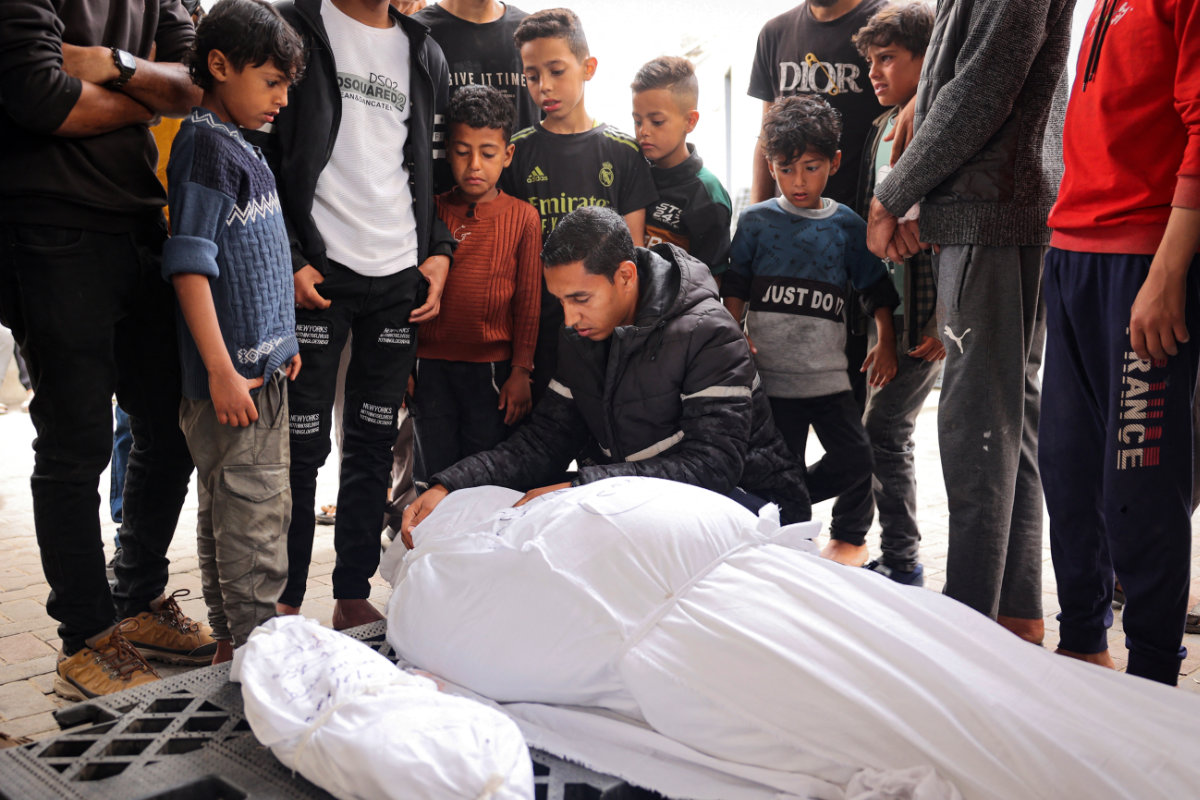
Mourners stand near corpses of an adult and a child killed in overnight Israeli bombardment, in the front of the morgue of a hospital in Rafah in the southern Gaza Strip on April 27, 2024. (AFP)
Early Saturday, an airstrike hit a house in Rafah’s Tel Sultan neighborhood, killing a man, his wife and their sons, ages 12, 10 and 8, according to records of the Abu Yousef Al-Najjar hospital’s morgue. A neighbor’s 4-month-old girl was also killed.
Ahmed Omar rushed with other neighbors after the 1:30 a.m. strike to look for survivors, but said they only found bodies and body parts. “It’s a tragedy,” he said.
An Israeli airstrike later Saturday on a building in Rafah killed seven people, including six members of the Ashour family, according to the morgue.
Five people were killed in the Nuseirat refugee camp in central Gaza overnight when an Israeli strike hit a house, according to officials at the Al-Aqsa Martyrs Hospital.
Elsewhere, Israeli forces shot and killed two Palestinian men at a checkpoint in the Israeli-occupied West Bank, the military said. It said the men had opened fire at troops stationed at Salem checkpoint near the city of Jenin.
Violence in the West Bank has flared since the war. The Ramallah-based Health Ministry says 491 Palestinians have been killed by Israeli fire.
Israel's counterproposal
Hamas said it was studying Israel’s latest counterproposal for a ceasefire, a day after reports said a delegation from mediator Egypt was in Israel trying to jump-start stalled negotiations.
Israel’s foreign minister said that the Rafah incursion could be suspended should there be a deal to secure the release of Israeli hostages.

Palestinian children walk amid the debris of a house destroyed by overnight Israeli bombardment in Rafah on April 27, 2024. (AFP)
“The release of the hostages is the top priority for us,” said Israel Katz. “If there will be a deal, we will suspend the operation.”
The Egyptian delegation discussed a “new vision” for a prolonged ceasefire in Gaza, according to an Egyptian official, who spoke on condition of anonymity to freely discuss the developments.
It wasn’t immediately clear whether Israel’s proposal was directly related to the visit.
Khalil Al-Hayya, deputy head of Hamas’s political arm in Gaza, said it had “received the official Zionist occupation response to the movement’s position, which was delivered to the Egyptian and Qatari mediators on April 13.”
Negotiations earlier this month centered on a six-week ceasefire proposal and the release of 40 civilian and sick hostages in exchange for freeing hundreds of Palestinian prisoners in Israeli jails.
A separate Hamas statement said leaders from the three main militant groups active in Gaza discussed attempts to end the war. It didn’t mention the Israeli proposal.
The armed wing of Hamas also released video footage of two men held hostage in Gaza, identified by Israeli campaign group the Hostages and Missing Families Forum as Keith Siegel and Omri Miran.
Mediators are working on a compromise that will answer most of both parties’ main demands, which could pave the way to continued negotiations with the goal of a deal to end the war, the official said.
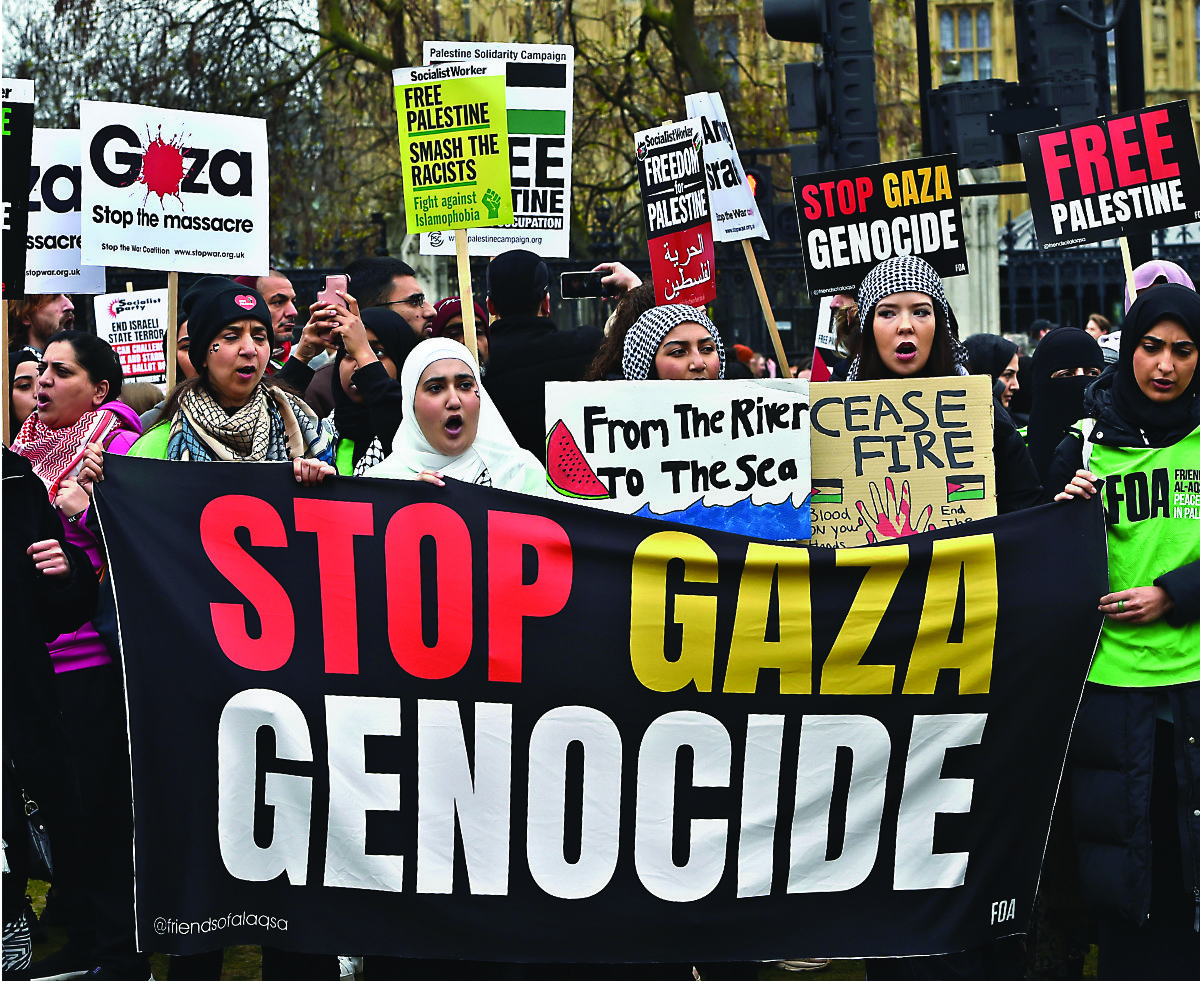
Israeli police stand by as protestors take part in a demonstration by Israeli and American Rabbis near Erez crossing between Israel and the Gaza strip on the Israeli side on April 26, 2024. (REUTERS)
Hamas has said it won’t back down from demands for a permanent ceasefire and full withdrawal of Israeli troops.
Israel has rejected both and said it will continue military operations until Hamas is defeated and that it will retain a security presence in Gaza.
There is growing international pressure for Hamas and Israel to reach a ceasefire deal and avert an Israeli attack on Rafah, where more than half of Gaza’s 2.3 million people have sought refuge.
Israel has insisted for months it plans a ground offensive into Rafah, on the border with Egypt, where it says many remaining Hamas militants remain, despite calls for restraint including from Israel’s staunchest ally, the United States.
Egypt has cautioned an offensive into Rafah could have “catastrophic consequences” on the humanitarian situation in Gaza, where famine is feared, and on regional peace and security.
Tolerating Israeli abuses
Washington has been critical of Israeli policies in the West Bank. US Secretary of State Antony Blinken, who is expected in Israel on Tuesday, recently determined an army unit committed rights abuses there before the war in Gaza.
But Blinken said in an undated letter to US House Speaker Mike Johnson, obtained by The Associated Press on Friday, that he’s postponing a decision on blocking aid to the unit to give Israel more time to right the wrongdoing. Blinken stressed that overall US military support for Israel’s defense wouldn’t be affected.
The US has also been building a pier to deliver aid to Gaza through a new port. Israel’s military confirmed Saturday that it would be operational by early May.
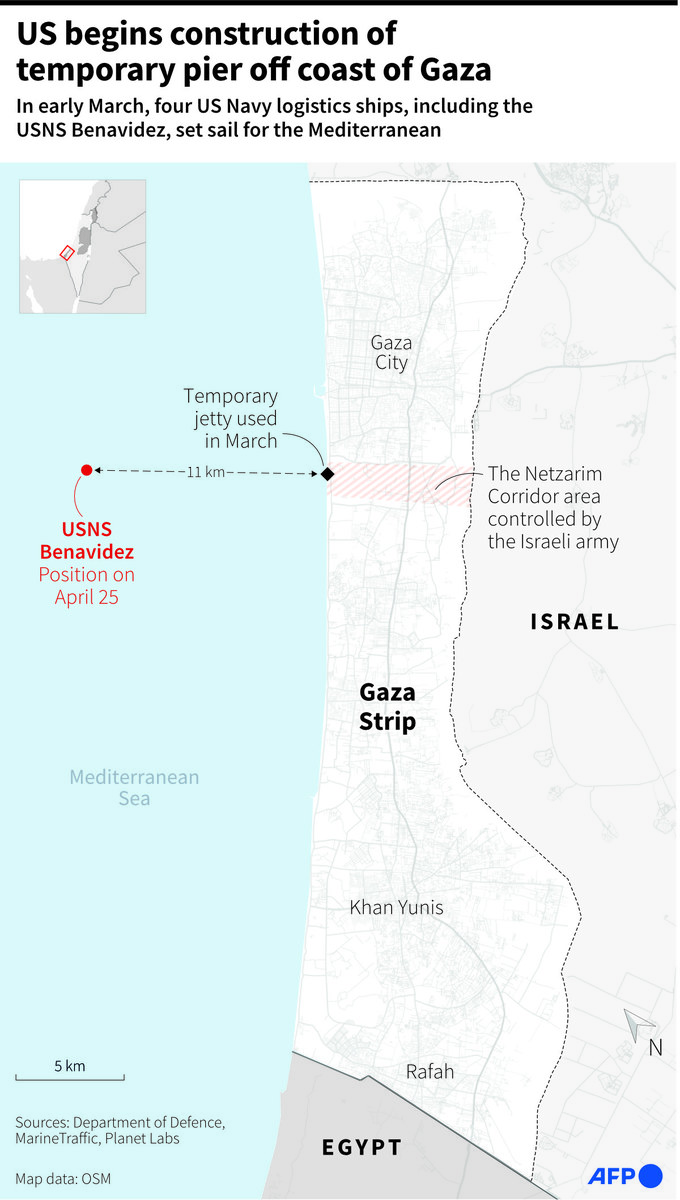
The BBC reported the UK government was considering deploying troops to drive the trucks to carry the aid to shore, citing unidentified government sources. British officials declined to comment.
Another aid effort, a three-ship flotilla coming from Turkiye, was prevented from sailing, organizers said.
Student protests over the war and its effect on Palestinians are growing on college campuses in the US, while demonstrations continue in many countries.
Hamas sparked the war by attacking southern Israel on Oct. 7, with militants killing around 1,200 people, mostly civilians, and taking around 250 hostage. Israel says the militants still hold around 100 hostages and the remains of more than 30 others.



